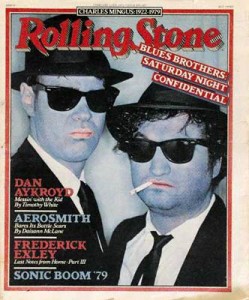1979 was the year in Johnstown, Pennsylvania when I decided that it was time to leave teaching and transition into business. For those of you who don’t remember that year, it was the beginning of some serious financial challenges for our country, but it was also two years after the Johnstown Flood of ’77, and there was an unemployment rate of 19.5% in Cambria County, PA.
 In 1980, when I accepted a job with a then bankrupt nonprofit organization in Somerset, PA, what had been a booming coal industry went into the skids. My house mortgage was about the same as the unemployment rate, 19%. The job that I took was in the arts and Ronald Reagan was interested in cutting funding to the National Endowment for the Arts.
In 1980, when I accepted a job with a then bankrupt nonprofit organization in Somerset, PA, what had been a booming coal industry went into the skids. My house mortgage was about the same as the unemployment rate, 19%. The job that I took was in the arts and Ronald Reagan was interested in cutting funding to the National Endowment for the Arts.
In 1985, my new job was with a tourism agency, and that was the year that then-PA Governor Casey cut funding to tourism.
In 1988, when I entered healthcare, it was clear that Johnstown could no longer support four hospitals, and the next decade and a half resulted in the closing of two (and almost three) of the four hospitals in that area.
Turn the clock forward to last October, when I announced my decision to become a healthcare consultant. The stock market crashed, eight of every ten hospitals stopped, postponed, or scaled back needed capital projects, 58% of hospitals are now reporting increases in uninsured patients using the emergency departments, 48% of hospitals have cut staff, and 80% have reported cutting expenses that include consultants.
As a consultant, the first thing I would tell anyone is that “No matter how bad things appear to be, you can do it.”
- Our successes as a teacher continue to remain evident as former students ranging in age from 38 to 58 continue to remind me of great memories of our time together.
- The arts organization became the largest and most successful rural arts organization east of the Mississippi.
- The Convention Bureau went from almost closed to the fifth largest agency in the State, and most of you have tracked the successes that we experienced at Windber.
Not unlike the little engine that could, we focused on the positive, forgot about the negative, and never dealt with “Mr. In-between.”

There are those who approach life cautiously, carefully, and very conservatively, and then there are those of us who drink from that same cup in big gulps and dream about how things could be rather than how they are. There are those who are afraid of failure, and those of us who embrace failure because we know that it is getting us closer to more dramatic successes.
The only boundaries that we have are between our ears.
Because the future is a design function. Let me close this blog post with the ending from my commencement address to the graduate students of St. Francis University (with the help once again of Dr. Leland Kaiser):
- Nothing has to be the way it is.
- We can invent (or prevent) our future, because all limitations are self imposed.
- We can empower ourselves to create a new world.
- Reframe any limitations to become opportunities because…
- Tremendous limitations breed success. They open doors.
So, as we design our future, remember that we should not work to create what people will like, but instead work to create what people will love!
…and we will know success beyond our wildest dreams.






